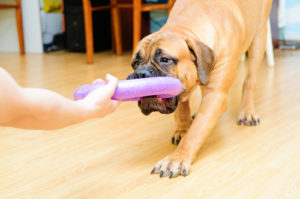We all know many animals put on weight during the winter months, to help keep them warm and to store up fat to burn as energy when food gets scare. Some may wonder, then, if our house pets need to be fed more or gain weight during these months too.
Lisa Hennessy, founder of Your Pet Chef, LLC.; began preparing meals about 5 years ago when her rough collie, Shelby, was diagnosed with degenerative myelopathy. This disease caused her to lose control of her hind limbs. Hennessy’s vet asked if her if she would be willing to prepare a special diet for her that had been designed by a leading veterinary researcher on this disease. Of course, Hennessy said yes.
She then proceeded to switch both of her other dogs from dry kibble to home cooked meals after she saw how much the new diet helped Shelby (it didn’t cure the disease, obviously, but it did slow it down, giving her more time with her beloved friend).
Since then, she has published the Your Pet Chef Cookbook where she shares her recipes, helpful hints, and stories and photos of my customer’s dogs. Recently, she published two holiday books: Your Pet Chef Presents the 12 Days of Christmas and the 8 Days of Hanukkah.
We asked this pet diet expert what her take is on whether your best friend needs a larger winter meal. You might be surprised at her answer.
Do dog’s dietary needs change in the winter?
We recommend increasing Omega 3’s and 6’s in your dog’s diet during the winter months as they are nature’s lubricants. Adding fish oil, kidney beans, or eggs to your dog’s diet can help to relieve dry and flaky skin and ease arthritis pain brought on by cold conditions. Proper hydration is also essential to optimal health during the winter. Be sure to have a clean, fresh water supply available to your pet at all times.

Do dog’s “put on weight” for the winter like other animals? If so, should we try and stop the cycle?
Most dogs are less active in the winter months. Chasing a tennis ball at a park covered in snow or ice isn’t a viable option (not to mention being very dangerous) to burn off some steam and calories. We need to be conscious of this fact during feeding times. If activity has been decreased, so should food intake. Perhaps a few less treats per day will do the trick. We also find it fun to create inside games that can keep our dogs entertained, engaged, and a bit more active during the winter months.
What about all those holiday treats we like to spoil our dog with – is that okay?
Holiday leftovers in moderation can be a great meal substitution. Thanksgiving can offer turkey, sweet potato, green beans, and cranberries which are all excellent sources of nutrition for our dogs. Stay away from foods that contain higher concentrations of fat and calories like gravy and stuffing. Christmas holiday traditions are varied in regards to meal options. Stick to leaner proteins like beef, chicken or fish and vegetables without a lot of added butter.
Your Dog is Not a Bear
So while the bear in the mountains may be storing fat for the winter, your domesticated best friend does not need to. In fact, like Hennessy suggests, you may have to decrease your dog’s food during the winter when he is not getting as much exercise. While wild animals will burn off the extra fat surviving a food scarce winter, your dog gets square meals a day, as well as treats. He is definitely not starving nor will he burn off that extra fat easily. Instead, you will end up with a fat dog, which means health problems. Do your best friend a favor – watch his weight, food intake, and exercise levels during the winter months to keep him happy, health, and of course, well fed, but not overfed.
About the Author
Based in Wilsonville, Ore., animal lover Kristina N. Lotz is a Certified Professional Dog Trainer – Knowledge Assessed (CPDT-KA) and works as a full time trainer. She is the founder of A Fairytail House, a unique all-positive all-sport dog training facility that helps rescue dogs in her area and provides free seminars and training classes for the community. In her spare time, she trains and competes in herding, agility, obedience, rally, and conformation with her Shetland Sheepdogs. She smartly married a Veterinary Technician, who helps keep the fur kids happy and healthy, and provides a quick resource for articles.
 Toledo, United States.
Toledo, United States.